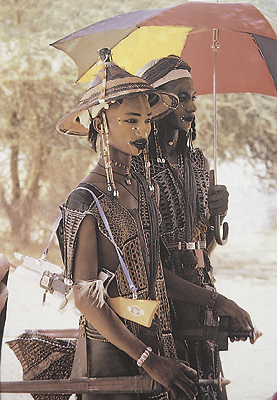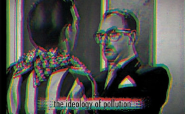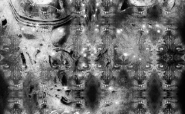| Zeitschrift Umělec 1997/1 >> Dream Society | Übersicht aller Ausgaben | ||||||||||||
|
|||||||||||||
Dream SocietyZeitschrift Umělec 1997/101.01.1997 Rolf Jensen | future | en cs |
|||||||||||||
|
"The Information Age, which opened only a few decades ago with the appearance of the first commercial computers, is already approaching its end. In the years ahead, we will move into what may be called the Dream Society.
When our future grandchildren look back on our age, they will see it as dull and gray, dominated by technology and neglecting human values. They may wonder what it was like to live at a time when life was divided into little boxes of either work or leisure. They will also think of us today as being poor. Our grandchildren will likely consume twice as much as we do. The huge increase in material wealth owes much to science and technology, but, in the future, attention will turn away from science and toward non materialistic and non-scientific values. The highest-paid person in the first half of the next century will be the “storyteller”. The value of products will depend on the story they tell. Nike and many other global companies are already mainly storytellers. That is where the money is – even today. Two trends in today´s society are particularly important in the transformation ahead. The first trend is the automation of information tasks. Just as industrial tasks have been automated, clerical work such as typing letters, entering data, and adding and subtracting sums has been increasingly turned over to machines, such as computers, photocopiers, and telephone-answering machines. The second key trend is the commercialisation of emotions. It will no longer be enough to produce a useful product: A story of legend must be built into it, a story that embodies values beyond utility. People buy blue jeans, for instance, only partly to cover their bodies; most of the money they pay is for the story that goes with the product – a story of independence, youth, power, and perhaps traditional (or non-traditional) values. In 25 years, what people buy will be mostly stories, legends, emotion, and lifestyle. Poverty will be redefined as the inability to satisfy more than one´s material needs. Work will be different in the future. The typical work situation will be in an office, where you sit at a desk and talk with your computer. The notion that work will be required is total dedication to the task. What a Dream Society requires is values – ethical, social, or religious. In the year 2020, many regions of the world will still be relatively poor compared with the developed nations. At the moment, western culture is gaining ground in many countries, due to the global dissemination of information. In 50 years, this could result in a global mono-culture, with a world market for the same products, music, entertainment, and fashion. Many cultures and philosophies would disappear. The other possibility is a global revival of cultures, with each tribe rediscovering its roots. Cultural diversity may become more important than a nation´s gross national product. People will not be concerned about whether one culture is “better” or “worse” than another; the important thing will be to preserve the difference. The seedling of the Dream Society may be glimpsed in such developments as the election of an actor as president of the United States and playwright as president of the Czech Republic. In the decades ahead, the seedling will become mighty Sequoias. (pages 18 and 19) "
01.01.1997
Empfohlene Artikel
|
|||||||||||||







Kommentar
Der Artikel ist bisher nicht kommentiert wordenNeuen Kommentar einfügen